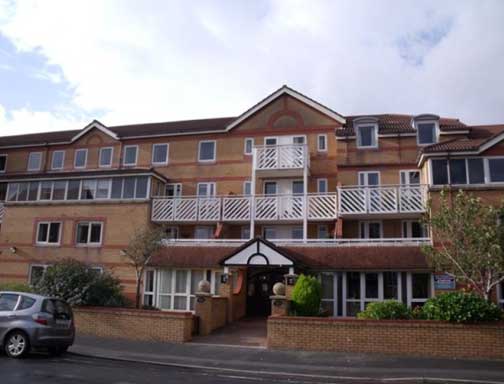
Ground rents are higher in retirement properties than ordinary leasehold flats. At a flat at Poplar Court they have risen from £250 to £527.17
Q: My sister and I inherited Mum’s flat in Poplar Court, St Anne’s, Lancashire at the beginning of 2013. I noticed a large increase in the ground rent just before Mum died when it jumped from £250 pa to £527.17 pa (111% increase), which is very high when compared with the £60 pa ground rent of nearby ‘normal’ flats.
E&M [which collects these fees for the Tchenguiz retirement freeholds] has explained that the increase is based on a simple calculation using the RPI figures from 1989 and 2012.
However, there are clauses in the lease that suggest that if the basis of the RPI changes over the years then it could be possible to seek advice from the Institute of Chartered Surveyors. So we would appreciate your view of this.
Please note that the property was purchased in 1992 with 122 years left on the lease for £85,150. After recently trying to sell the flat for more than one year priced at £125,000 we only received one offer for £113,000 (33% increase).
Please keep up your good work.
A: Unfortunately, ground rents are a rather nasty thing in the leasehold sector and are in the contract entered into between the parties. Some rents are low and others high there is no logical basis in the amount charged. After undertaking some initial research, you need to get specialist advice.
The lease does seem to entitle the landlord to increase them, as they have suggested. The fact that there has not been a correspondingly increase in value of the flat does not seem relevant to clauses in the lease even though it is a sad reflation of property values in the retirement sector. The reference to a surveyor in the lease only seems to apply if RPI disappears as a measure.
One potential solution might be to apply for a lease extension. Given the length of lease remaining this may also be the most cost effective solution long term. If the tribunal grants a lease extension to 999 years under the 93 Act it also reviews the rent and normally reduces it to a peppercorn for future years.
You will need a surveyor and a solicitor. Or rather you need a surveyor and probably a solicitor specialising in this field, While the pricing should all follow a standard model you still need to get the arguments right in the tribunal.
It would, of course, reduce costs if you could persuade the other owners to apply for a lease extension. At the moment you have an asset who’s value will begin to be impacted by the number of years left on the lease in the not too distant future.





















whilst in this case the lease does appear to allow for this method of calculating ground rent increases, there are still many leases that provide for an independent ground rent valuation to be carried out by an RICS surveyor paid for by the freeholder.
E&M have in the past written to residents from their “Ground Rent Uplift Department” (You really could not make it up) saying they have carried out a ground rent valuation and the new price is £xxx. only after much pressure do they admit to the fact that due to an “administrative error” the ground rent survey had not been carried out. Residents should also take care to check that any ground rent increase is done on the correct year, as “administrative errors” have been made on this as well. Always check the terms of the lease, and never take anything eminating from E&M at face value.
I am appalled at the practices of this particular group with the issue of these sorts of letters, as well as those on subletting, where reference is not made to the lease to ensure that the terms actually apply.
There is element of “sorry computer error”, but it is widespread enough a practice, and this is the latest wheeze, that if enough people are asked, that the errors are so numerous, that there is an argument that it is a deliberate tactic of “throw mud at the barn door and some of it will stick”, to [REDACTED …] owners. That is why the politicians need to be beaten around the head 🙂 ( metaphorically, as lawyers say no to that, no matter how much they might deserve it) with a lease, to insist that the current code of practice (being revised ) is to apply to everyone.
I have written this week to LEASE asking that they look closely at a better guide for the newbie leaseholder, written from their POV to address these sorts of common issues, and not just the more complex ones.
The 1993 Act doesn’t result in a 999 year lease; it’s 99 years plus the remaining term. 999 requires a deal outside the 1993 Act
The right of a leaseholder of 2 or more years , is to seek a statutory 90 years lease extension at peppercorn annual ground rent.
Under s56.1 of the Act the extension of for 90 years beyond the remaining term of the lease and the rent set as peppercorn.
999 years was something else I was thinking about at the time.
The problem though martin is that premium has to take into consideration the increases in future years so that the freeholder is compensated for the loss of that future income stream. That makes some pretty horrible looking premiums even if you were to buy a 125 year lease today and extend it in two years, because of the GR income.
The M & S lease is quite specfic regarding the ground rent increase and it is linked to RPI or a similar indicator.
When someone buyes a new flat the RPI review is some 25 years hence and so it is not something to worry about. However, as time goes by the review gets closer and I am amazed that solicitors do not pick this up on subsequent re-sales of the property and advise their clients they will be in for a large increase in the ground rent. It is actually quite easy to work out exactly how much the increase is likely to be.
And these large increases also have a knock on effect on both the saleability of the property and its price. If I knew the ground rent was going to double I would ask for a few 000 off the purchase price.
Ground rents are an anacrhonism yet no government seems prepared to tackle the problem. You cannot go to a tribunal to get the ground rent reviewed and your only option is to buy the freehold – not very attractive for an elderly leaseholder.
Hi
One wonders if these sales are not “Mis-selling” as inappropriate or inadequate information was provided.
I believe the following statement sums up the situation:
“these things should not happen in the civilized, democratic, and accountable society in which [we are told] we live”
Value for Money is something which we no longer have. Whether it be a retirement flat or the unnecessary fencing poorly erected by a local council ….
It is not until war erupts that people take notice. And war erupts when people reach the end of their tether – be it in Gaza or Ukraine.
Was going to put Happy Days – but it seems inappropriate …
Its difficult to claim mis-selling if you have a conveyancing solicitor to guide you in the purchase.
You CANNOT get Value for Money when buying new retirement flats, because the balance of supply of new build and market demand for new retirement properties are in favour of the Developer’s side.
The increase of ground rent for lease starting in 1989 at 2012 ( i.e after 23 years is strange. ?? )
Most 99 years leases have ground rent increase rising to double after every 33 years and usually 125 year leases, the ground rent may increase by double after every 25 years .
Most M & S leases are 125 years with (roughly) 25 year reviews based on RPI. What will the ground rent be 100 years hence!!!!!!!!!!!!!!!!! It could conceivably be thousands!
What is M & S charging for ground rents on NEW retirement developments – £450/500. And yet people are still buying these properties!
I’ll be buying a freehold bungalow on my retirement!
Actually I was answering a similar question on a similar site and it got, in one example to £75k, as it was based on property value on an upward only basis. The review clause was over a page long!
No Ollie those days are long gone. Some reviews are falling due now for buildings built in the early 00s on 10/ 15 year patterns, cunningly backdated to review date or initial date a few years prior to construction.